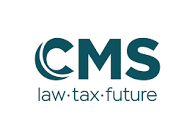On October 19, 2023, the Swiss Federal Tax Administration updated its tax information on cryptocurrencies. This Information describes the operation of a blockchain as well as mining and staking, and also addresses the issue of taxation of the various categories of token. And there is a focus on non-fungible tokens (NFTs) and airdrops.
NFT taxation
Definition of an NFT
According to the Swiss Federal Tax Administration, an NFT is cryptographically unique, indivisible, irreplaceable and verifiable. It represents a specific object, digital or physical, in a blockchain. For the administration, an NFT exists only once and cannot be shared, exchanged or replaced and enables digital or physical assets to be traded and transferred in a way that is visible to the general public. In addition, since the creator of the NFT is publicly registered on the blockchain, it is possible to guarantee the original creation of the digital asset.
This definition is not accurate even if it captures the essence of “classic” NFTs, though is probably sufficient for the purposes of addressing the taxation of such NFTs. This definition, however, raises the question as to how ERC-1155 NFTs will be approached by tax authorities to the extent that the ERC-1155 is a multi-token standard and a single ERC-1155 smart contract can deal with a fungible and non-fungible token possibly at the same time.
General principles
According to the Swiss Federal Tax Administration, the purchase and sale of NFTs is generally comparable to a traditional purchase and sale of assets. Therefore, tax consequences are also comparable to those of a purchase.
Income tax
The purchase of a NFT constitutes a transfer of assets. The transaction does not increase the buyer’s assets and therefore has no income tax implications. According to the Swiss Federal Tax Administration, any transaction costs associated with the purchase are not tax deductible for non-professionals, as they relate to the swapping (and not the management) of assets. The profit or loss realized by non-professionals on the sale of the NFT is not taken into account. Any royalties paid to the creator of the NFT with the various transfers are subject to income tax as income from intangible assets.
The Swiss Federal Tax Administration specifies in the updated tax information that the tax consequences must be assessed on a case-by-case basis since almost anything can be minted into an NFT.
Furthermore, the Swiss Federal Tax Administration considers that the trading or creation of NFTs may lead to the assumption of independent (ie professional) activity depending on the case. The principle of book value or the “principe de déterminance des comptes” (for example, the profit shown in the commercial financial statements that serves as the basis for income tax) then applies. As an exchange of assets, the purchase has no impact on income and is therefore not taxable.
Purchased/produced NFTs must be entered in the company’s balance sheet at their acquisition or creation price. At the moment of their sale, the difference between the purchase and sale price is considered as taxable income or expense.
Corporate income tax
The Swiss Federal Tax Administration points out that the profit shown in the commercial financial statements serves as the basis for cash in transit (CIT). Purchased or produced NFT must be entered in the company’s balance sheet at the moment of their acquisition or creation. The difference between the purchase price and the sale price, as well as any license fees, must be considered as income or expenses and therefore be considered taxable.
Withholding tax
The Information clarifies that the purchase and sale of NFTs are in principle not subject to withholding tax as they do not generally constitute income from movable assets subject to this tax, such as interest on bonds, taxable income from participation rights, income from collective investment schemes or interest on client assets held with banks. However, since anything (including bonds or shares) can in principle be minted in an NFT, the tax consequences must be assessed on a case-by-case basis.
Airdrop taxation
Definition
The updated Information generally defines “airdrop” as a process whereby new or existing blockchain projects automatically transfer certain crypto-assets to specific individuals free of charge. Interestingly, the Information also contains a brief description of various types of airdrops, such as “bounty airdrop”, “holder airdrop”, and “exclusive airdrop”.
General principles
In principle, in the case of airdrops to persons taxable in Switzerland, the Swiss Federal Tax Administration assumes that the tokens received are taxable. An analysis of how the airdrop is structured will determine which of the following taxable rules is relevant: the general income clause, income from employment relationships, returns on movable assets or, in very specific cases, a tax exemption.
Donation
The Swiss Federal Tax Administration acknowledges that there can be a variety of reasons for airdropping. As a general rule, an airdrop has a commercial purpose, such as increasing awareness or use of a platform, blockchain security or trading. According to the Swiss Federal Tax Administration, because airdrops are generally justified by commercial use, it must be concluded that they are not a donation.
Lottery price
According to the Swiss Federal Tax Administration, unit winnings of up to CHF 1,000 ($1,099) from a game of skill or a lottery designed to promote sales that are not subject to the Federal Gaming Act are tax-exempt. Hence, in principle, an airdrop could qualify as a promotional game and be tax-exempt up to the limit of CHF 1,000 ($1,099). However, this is only the case if the airdrop meets the following cumulative conditions:
- the number of winners is limited from the outset;
- winners are selected at random;
- participation is subject to a stake in monetary value; and
- the organizer’s head office is located in Switzerland.
Income tax
The profit is calculated on the basis of a periodic result determined in accordance with the provisions of the Swiss Code of Obligations or another recognized accounting standard. Consequently, the organizer may deduct the tokens issued by airdrop as expenses justified by regular commercial use. Additional tokens received through an airdrop increase the taxable profit.
Withholding tax
According to the Swiss Federal Tax Administration, airdrops generally are not subject to withholding tax. In certain cases, however, an airdrop organised by a resident of Switzerland may be subject to withholding tax if it involves a deemed distribution of profits or if an airdrop is made in connection with investment tokens with participation rights or investment tokens of the foreign capital.
In addition, according to the updated Information, the gain from an airdrop is subject to withholding tax if it qualifies as a game of skill designed to promote sales and if the unit gain exceeds the exemption threshold of CHF 1,000 ($1,099).
Outlook for the crypto ecosystem
This update of the Information is a positive development since it clarifies the tax consequences of the crypto ecosystem. Careful tax planning, however, remains important for all crypto-related and FinTech projects since case-by-case analysis is often required.
Dr Vaïk Müller is a partner and co-head of Banking & Finance; and Julien Witzig practices as an attorney in the Tax Department, CMS Geneva.














